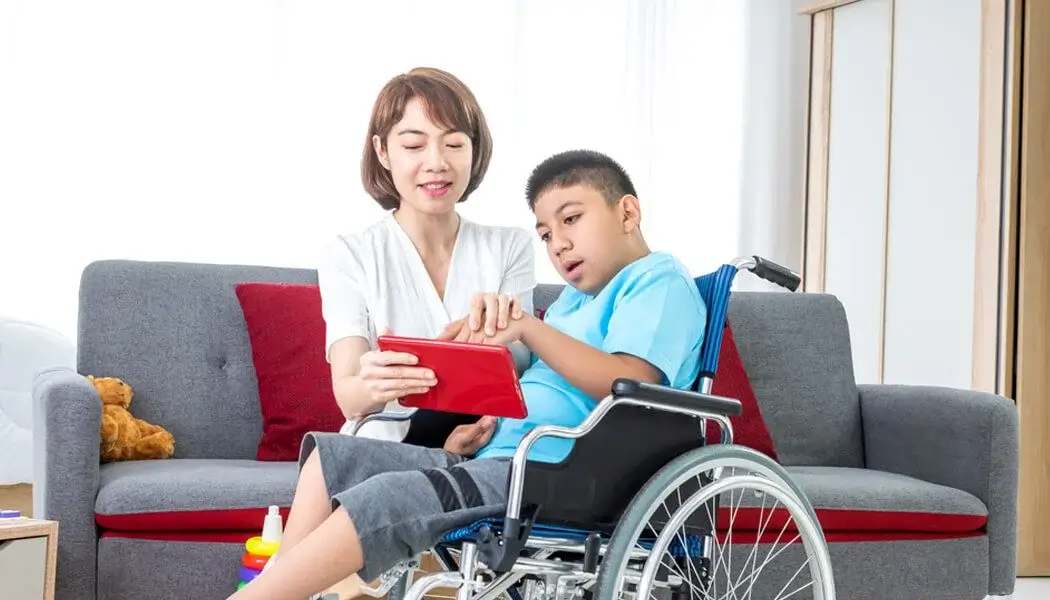
An overview of our learning disability services
Life is a brief roller coaster ride that everyone should have the chance to experience.
What is a learning disability?
A learning disability is a chronic condition that affects your ability to learn new things.
If you suffer from a learning disability, you may struggle with:
- Comprehend complex information.
- Acquire new abilities.
- Carry out daily activities such as household tasks or interacting with others.
They typically occur while the brain is still developing. This could happen before, during, or after birth or during childhood. It is critical that people with learning disabilities receive the appropriate support. People with learning disabilities should be given extra encouragement because they may be subjected to negative attitudes and, in severe cases, abuse. Such experiences can affect a person's mental health and well-being. Individuals with learning disabilities can live ordinary and fulfilling lives with the right support and motivation.
What are the causes of learning disabilities?
Different neurological processes in a person's brain are the root cause of learning disabilities. These differences can be caused even before the person is born: illness during maternity, complications during birth that block the flow of oxygen to the baby’s brain, or injuries or illnesses in childhood. Moreover, heredity is one of the primary causes of learning disabilities, as it can often run in the family. However, a learning disability shouldn't be mistaken for a learning problem that may arise from other health conditions like visual impairment, intellectual disability, etc.
How do learning disabilities affect adults?
Learning disabilities in adults can be different for each person. Many individuals with learning disabilities are able to work, maintain relationships, live independently, and earn credentials, while others may require assistance throughout their lifetimes. Adults with learning disabilities struggle with reading, writing, memorization, eye-hand coordination, change management, etc. Undiagnosed learning disabilities in adults can influence professional choices, hinder employment advancement, and cause a variety of psychological and emotional disorders such as anxiety disorder, sadness, and feelings of poor self-worth. However, the correct diagnosis, coping strategies, and accommodations can help every individual with a learning disability reach their maximum potential. Numerous adults struggle with learning disabilities because they are unable to effectively communicate them to their families, peers, and employers, as well as take measures to treat and manage their condition.
According to reports, there are approximately 1.5 million people in the UK diagnosed with learning disabilities. The percentage of undiagnosed and unreported cases in the UK is reportedly exceedingly high, however. Nearly 2.16 percent of adults have a learning disability.
Is autism a learning disability?
Both learning disabilities and autism are different in that learning disabilities affect a person's ability to learn new information, develop new skills, and live independently, while autism is a long-term condition that affects the person's ability to think and see the world. Children with learning disabilities are very slow at learning things, and sometimes it might take years to learn something new, or they might not develop the skill at all. However, children with autism can be very intelligent or might learn slowly, but they might find the sensory aspect of learning hard.
How do you care for someone with a learning disability?
Learning disabilities vary from individual to individual and may be associated with psychological and physiological issues. Homecare is the best solution, as the person stays in their home environment to deal with such issues, and professional providers offer support and care. The benefit of live-in care is that the carers are available round-the-clock to provide care whenever you need support. People with learning disabilities and their families face a lot of challenges on a daily basis. Trained and skilled live-in carers ensure that you and your family help to maintain their quality of life. People with all kinds of learning disabilities receive the highest level of support and care from live-in carers.
If you are looking for skilled live-in care providers in Yeovil, UK, contact Nurses Group Homecare, where we provide care packages after assessing the needs of the person.
What are the learning disability services offered by Nurses Group Homecare?
Nurses Group Homecare provides care services, to adults and children with learning disabilities. There are various learning disability services offered by Nurses Group Homecare in Yeovil, including:
- Maintain contact with friends and family; attend school, college, or clubs; or pursue a favourite hobby.
- Maintain your health and fitness by attending medical appointments, eating well, or going to a fitness centre.
- Maintain your independence by managing your money, going shopping, or paying your bills.
- Maintain a daily routine, such as getting up and going to bed at the same time every day.
- Keep your home clean and tidy by assisting with household tasks such as laundry and ironing.
Nurses Group Homecare treats each person as an individual with their own set of personal interests and goals. We make sure that our service builds on your unique skills and strengths so that you can live a full life.
Following are some of the unique learning disability services provided by Nurses Group Homecare in Yeovil:
Nurses Group Homecare can tailor the learning disability support service to meet your specific needs. With the help of a highly trained carer, we can offer live-in care, full-time care, or care for a short time. We're available round-the-clock to discuss your homecare needs and find the best solution for you. Our care services aim to provide support to live independently with the choice of ways they want to live.